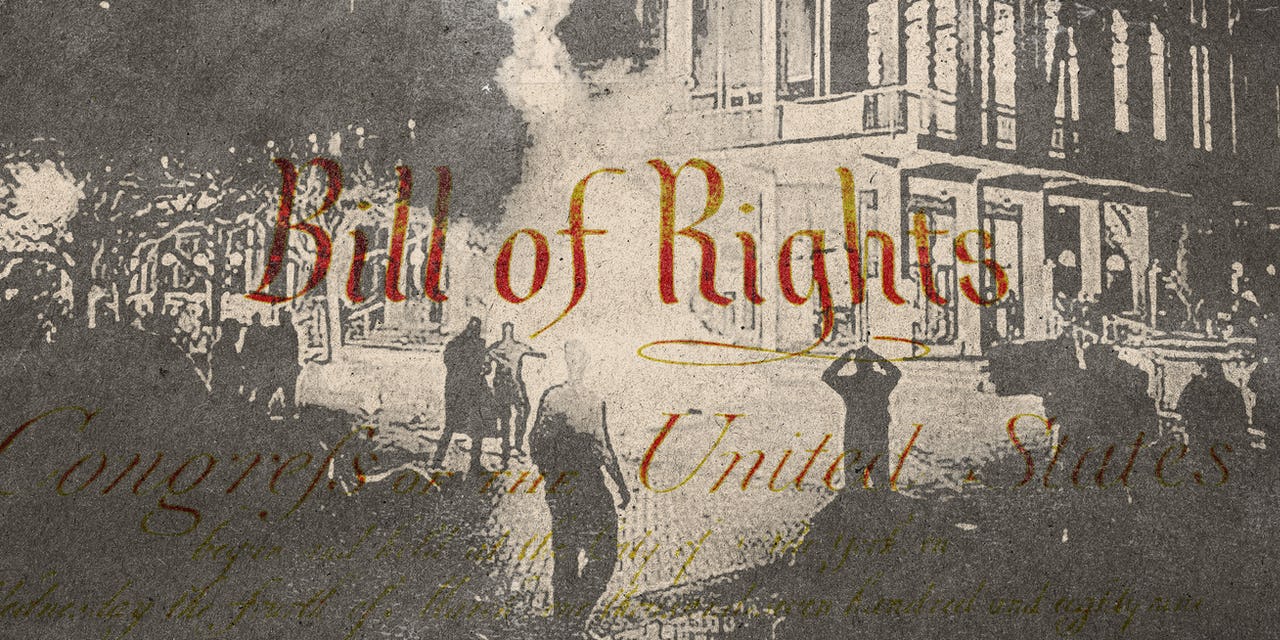Sept. 17 is Constitution Day, a time for government-mandated veneration of the U.S. Constitution. Educational institutions receiving federal funds must hold a program for students about our frame of government. According to Nicholas Kent, an undersecretary at the Department of Education, “Constitution Day presents an annual opportunity to promote civic awareness and understanding about the Constitution among your students and the broader school or campus community.”
Although it is probably not what Undersecretary Kent had in mind, real civic awareness would mean a study on how our Constitution has been molded via dishonest interpretation and has assumed its present degraded form.
James Madison and Alexander Hamilton, when urging ratification in The Federalist Papers, assured the people that the general government would exercise, in Madison’s words, “few and defined” powers directed mostly to foreign affairs and trade. They denied that the new government would have the power to infringe on the reserved powers of the states.
Pro-ratification forces also denied that Americans needed a bill of rights. The federal government possessed no broad police power to legislate on the health, welfare, and morals of the people. While bills of rights were appropriate for state constitutions (many of which vested their legislatures with broad authority), the federal Constitution was a different animal—supposedly a much tamer animal.
The Anti-Federalists (those who opposed ratification of the Constitution) were not calmed by these assurances. Elbridge Gerry of Massachusetts, who refused to sign the Constitution at the Philadelphia Convention, complained that “some of the powers of the [national] legislature are ambiguous, and others indefinite and dangerous.” He and other Anti-Federalists believed there would be ample opportunity for the federal government to claim greater authority than Madison promised.
Within the first decade or so under the Constitution, leaders in the federal government forgot or ignored the promise of limited powers. Through extremely loose construction, they claimed Congress could incorporate a national bank (a power the Philadelphia Convention purposefully withheld). Congress even criminalized criticism of the federal government, although there was no enumerated power pertaining to the thoughts, speech, and writings of the people. Power grabs by implication and ambiguity ruled the day and accelerated as time marched on.
Today, judges, members of Congress, and the president see the words of the Constitution as malleable reference points designed to bend and morph with evolving values and human aspirations. Certainty and restraint are exchanged for pliancy and dynamism.
Without seeking amendments to the Constitution, the national government has claimed myriad new powers. For example, Congress regulates the amount of wheat a farmer can grow for personal consumption, the president sends the armed forces into “hot zones” without even a nod to the national legislature, and the Supreme Court strikes mundane state laws governing various internal matters. All of this happens without an enumerated power over agriculture, a war power vested in the executive, or a constitutional license for the federal courts to evaluate the wisdom of state policy decisions.
In addition to few and defined federal powers, the Federalists also promised, in the words of Madison, that government over a large territory would be “most favorable to the election of proper guardians of the public weal.” It would, he argued, “refine and enlarge the public views, by passing them through the medium of a chosen body of citizens, whose wisdom may best discern the true interest of their country.” In other words, national elections and national representatives would tend to promote the more intelligent and reflective leaders to office.
Anti-Federalists did not buy it. They supported a union among the states, but believed that absent exceptional circumstances power should be wielded by legislatures close to the people. In state and local assemblies, there would be men who mixed with the common people, who were aware of local circumstances, and who could quickly be held accountable if they strayed from the interests of the people. Self-government, for the Anti-Federalists, meant government on a human scale.
Our current state of affairs, whether we call it tyranny, the Living Constitution, or something else, has not wrought political peace. Commentators see deep divisions and question whether the United States can survive as a nation. Time magazine’s Ian Bremmer has correctly stated that “[t]here is no advanced industrial democracy in the world more politically divided, or politically dysfunctional, than the United States today.” The recent assassination of Charlie Kirk affirms this.
Rather than blindly celebrate the Constitution as it stands today, Americans should use Constitution Day to acquaint themselves with the Anti-Federalists and their warnings about power and big government. They should also study the promises of the pro-ratification forces to see how the Constitution should be interpreted.
St George Tucker, who wrote the first full-length exposition of the Constitution in 1803, set forth the North Star of constitutional interpretation: “that the powers delegated to the federal government, are, in all cases, to receive the most strict construction that the instrument will bear, where the rights of a state or of the people, either collectively, or individually, may be drawn in question.”
Tucker’s rule promises a return to constitutional sanity. It is worthy of thought and reflection on Constitution Day, and perhaps more importantly, on Election Day.
Reprinted with permission from Independent Institute.

